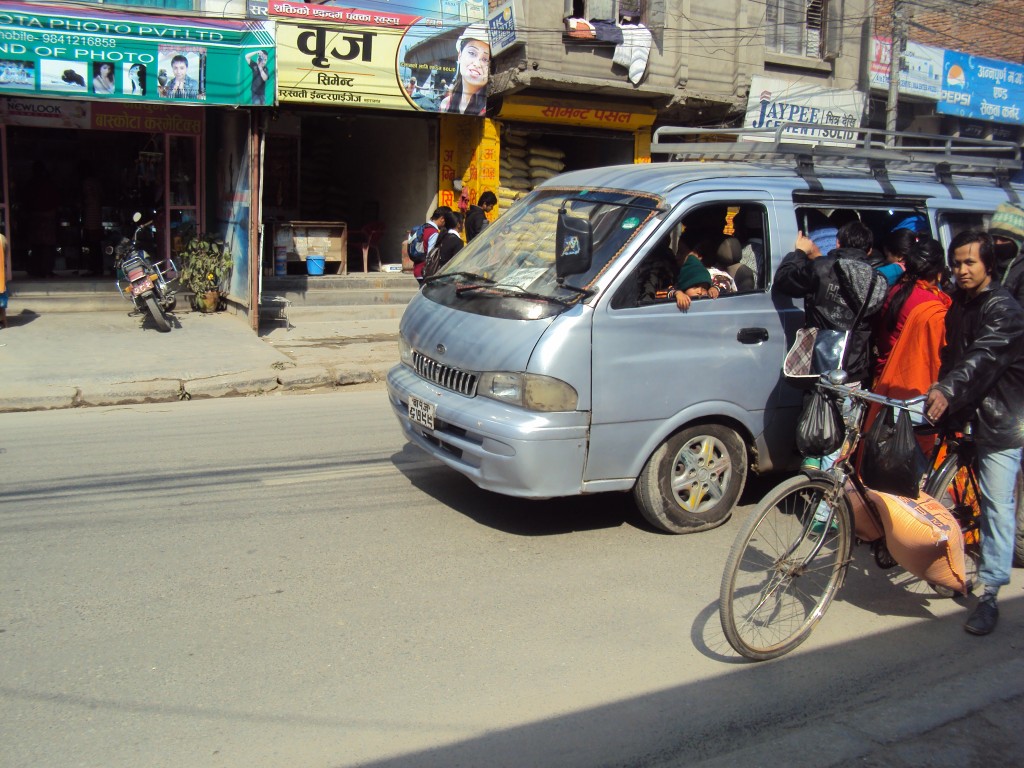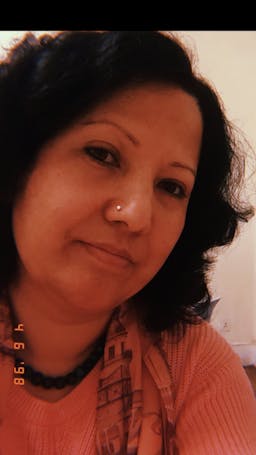Let’s break the silence and speak up for our rights
Jan 21, 2015
Story

Immediately after the microbus stops, people hurry up to ride. After dashing and pushing each other, usually the males and the young get seats first, so people who need extra care are compelled to stand, often without even a handhold.
In Nepal, using public vehicles always entails “the scuffle” as we call it. Whether we use bus, micro-bus or tempo, there are hassles. Moreover, it’s extremely toilsome for people with special needs: elderly people, pregnant woman and women with children. However short the distance may be, it feels longer in that suffocating environment. Another cause for concern in public vehicles is the commonly occurring sexual harassment of women.
The Nepalese government passed the Public Transportation Code of Conduct 2067 B.S. at the end of 2010. This code declared reserved seating on public vehicles for people with special needs, elderly people and women. The government’s move in passing this code is commendable, but the problem is not impacted because no one is enforcing the law. The hard reality is that change is very slow for the customs and habits of people in Nepal.
Culture of silence:
Once, several women and I were hanging from the holds near the door. I noticed the lines written on the micro bus’s wall: “3 seats for woman and 2 for disabled.” I saw no women sitting there – but five men. I could not stop myself from speaking because a pregnant woman was hanging along with me. I pointed out the notice and asked for seats, but those passengers refused to vacate the seats. They said they had come first. And the vehicle conductor agreed with them. I became so upset with this, but anger in public to men from women is extremely unacceptable in Nepal, so I had to hide my feelings. Even my pregnant friend remained silent.
Dil Bahadur, a person with special needs, shared his worries, “I hail the bus, but the drivers don’t stop. Even if they do stop I cannot always ride, as all the vehicles are not disability-friendly, and we can’t use those seats. So the reservation for us is worthless.” I put a question to him whether he has spoken up about his worries. “Who will hear our voice?” He explains his silence with his desperate answer.
My friend Sunita always uses public vehicles, but she doesn’t care about the reservation seat. “Why?” I question her. “Nobody supports me when I say something. Besides, it’s disgraceful to be the only one saying something.” Oh! Having fear of being odd among other silent people is her cause for being silent.
The culture of silence still exists in our society though the people are educated and aware. I expect to get support from others when I speak against wrong. My expectation is dashed when bystanders do nothing but stare or smirk. Frustration begins to kill my passion, and I cry at this bleak behavior.
”The law should be equal for all, regardless of gender.” A college boy shares his opinion about the issue. I agree, the law should be equally enforced for all. I agree with him that when a teenage pair or young people travel together, it’s no matter whether the boy or the girl takes the seat. But when a man or a college boy takes a seat and others who need to sit must stand – that makes me feel that our society is not even civilized! Regardless of codes and laws, we should show caring and compassion for our fellow humanity. Our 21st century society shouldn’t have this problem to begin with.
I urge all the people who share this concern: let’s band together and break the silence! We can and we must demand enforcement of the public vehicle code. With our voice and pressure, we can meet, plan, and insist together on monitoring and enforcement of the public vehicle reservation code. Complaints must be heard and consequences shall be given whenever the code is not followed. All the people – women, men, disabled persons, and youth – can raise our voices together, into action for our safety and our rights.
This article is part of a writing assignment for Voices of Our Future a program of World Pulse that provides rigorous new media and citizen journalism training for grassroots women leaders. World Pulse lifts and unites the voices of women from some of the most unheard regions of the world.




